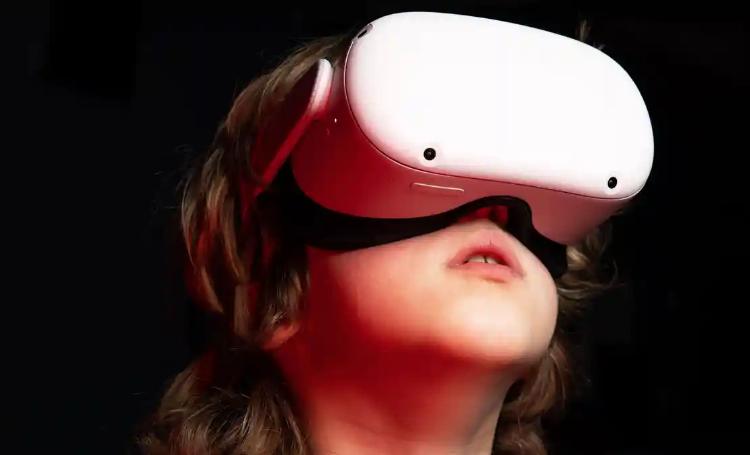
The Guardian reports that the UK's data regulator is seeking negotiations with Meta on child protection issues because Meta's head-mounted VR product, Oculus Quest 2, may violate children's online safety regulations (hereinafter referred to as children's regulations).
The Oculus Quest 2 is a VR headset where users can download different apps and wear it to experience virtual reality technologies, including virtual games and virtual social networking. However, child safety experts in the UK warn that the VR product could expose young users to threats of sexual harassment and abuse on the platform.
Research by CCDH (Anti-Data Hate Centre), a British movement group, shows multiple incidents of harassment of minors on Oculus' best-selling social app, VRChat. For example, in the virtual world, a teenager is stalked by two men with shortness of breath while another man laughs at them as "sex offenders."
Britain's data regulator said it would contact Meta about complying with age-appropriate design codes, also known as children's codes, which stipulate that internet apps that serve children under the age of 18 should put "the interests of children first" and focus on preventing misuse of children's data by websites, apps and "connected devices", but do not explicitly regulate the content. Companies that violate this rule could be fined the equivalent of 4% of the company's global turnover, with a penalty of £2.5 billion in the case of Meta. However, it is also possible that Meta will only be formally warned and reprimanded.
A spokesman for the UK's data regulator said, "We plan to further discuss child privacy and data protection issues based on discussions on the design approach of Oculus products and virtual reality services. Parents and children can contact us if they are concerned about the way their data is being processed. ”
Meta disagreed with the allegation, with a spokesperson saying they were "committed to fulfilling their obligations under the code to provide young people with age-appropriate experiences." He added that Oculus' terms of service do not allow people under the age of 13 to create accounts or use devices.
But one of the proponents of the children's regulations, Biban Kiddron, said Oculus requires users to be older than 13, and to verify that, Meta may need to violate the regulations and check the age of users.
"So we need to think of 'safety by design' as the new norm in tech," Kidron said. "Kids using virtual reality headsets like Oculus, simply tick the box and declare themselves to meet the minimum age requirements to enter chat rooms or use other features known to be at risk." This is not enough to isolate them from child abuse, harassment, racism and pornography. ”
Andy Barros, head of child cybersecurity policy at the National Society for the Prevention of Child Abuse (NSPCC), believes that the CCDH study has raised concerns about Zuckerberg's "metaverse" program. "If this is what Mark Zuckerberg calls the 'metacosm', it shows that he was not committed to building the world safely from the start." Barros said.
CCDH said that during their 12-hour investigation into VRChat, more than 100 violations of Meta's own regulations were found, saying that Meta "neglected to provide even the minimum security guarantees for its 'metaverse' program." CCDH CEO Imran Ahmed said: "How can a person with a conscience let people join a platform when they are not yet sure whether it is safe or not? ”
Compilation/Synthesis: Nandu trainee reporter Hu Gengshuo